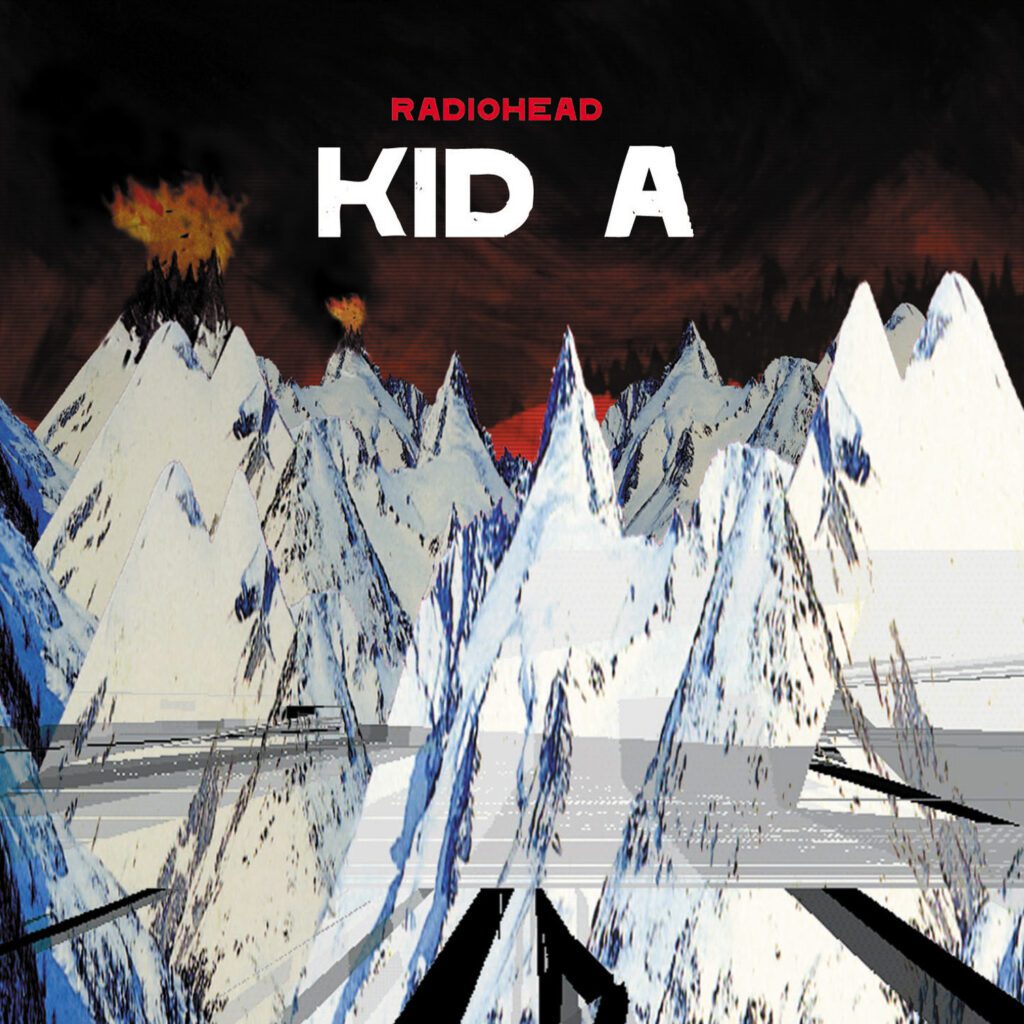Celebrating Ed O’Brien, born on this day in 1968. —Ed.
Not long after Radiohead released 2000’s Kid A, my friend Patrick and I gave it a scathing review without having actually listened to it, on the basis that its only appeal was to depressives better served by listening to the Archies. We also surmised that if Thom Yorke was such a creep why bother, because who wants to hang out with a creep? And seems we weren’t alone. Author Nick Hornby lambasted Kid A, and a critic for England’s Melody Maker dismissed it as “tubby, ostentatious, self-congratulatory, look-ma-I-can-suck-my-own-cock whiny old rubbish.” You won’t hear that sort of language on The Crown.


The band itself was split over Kid A’s new direction; vocalist/songwriter Thom Yorke went into the studio convinced rock music had “run its course,” while guitarist/keyboardist Jonny Greenwood and bass player Colin Greenwood worried that they risked producing “awful art-rock nonsense just for its own sake.” Yorke was full of it–folks have been writing rock’s obituary since the early 1960s. The Greenwoods were wrong as well–Kid A may not be my cup of studio overkill, but it’s a noble foray into the realms of electronica that works, at least in parts, very well indeed.
Dreamy atmospherics abound, and on occasion Radiohead take things too far. The soundscape that is “Treefingers” is a limpid pool of nothing special, and if Yorke thinks he’s breaking new sonic ground he’s dead wrong; David Bowie was doing this sort of thing in the late seventies. The title track is a trifle livelier thanks to its snazzy drum beat and electronic squiggles, but Yorke’s distorted vocals serve only to annoy, and the big bass thump at the end of the song is too little too late.
“The National Anthem” is a different story altogether. Sure, Yorke copped its humongous bass line straight from the Fall’s “Blindness,” but the hard bop horns that dominate the song’s latter half should impress even jazz fans. The floating-in-outer space “How to Disappear Completely” is a triumph as well, despite its debt to Pink Floyd (and surprisingly, the Verve)–Yorke actually makes himself understood, and that “I’m not here, this isn’t happening” is as apt a review of Yorke and Kid A as any.
Tribal drums and Greenwood’s guitar riff put color on the cheeks of “Optimistic,” and the line “the best you can is good enough” is almost enough to convince you Mr. Down-in-the-Mouth is a closet positive thinker until he gets to the stuff about vultures, big fish eating smaller fish, and George Orwell’s Animal Farm. The dreamscape that is “In Limbo” ain’t half bad if your drug of choice is Novocaine. On the rapid heartbeat disguised as a song that is “Idioteque,” Yorke sings,“This is really happening,” but if you’re like me, you’ll find yourself wishing it wasn’t.
“Morning Bell” ‘s lovely melody makes it an album highlight, as does its upward lift–oh, and I like the part where Yorke asks, “Where’d you park the car?” (It’s right over there, Thom, in the handicapped space reserved for people who can’t emote.) The melody of “Motion Picture Soundtrack” is also dreamy–Yorke waxes wistful over a church organ (probably not a real one but you get the idea), and all’s well until the heavenly harps and angelic voices come wisping in from stage left.
Kid A is no A, but I will call it a Kid B-. Its atmospherics aren’t for everybody, and it’s easy to understand why many fans felt let down after 1997’s (slightly) sharper-edged and more conventional OK Computer. But ambitious and audacious it is, and many admire its sublime sonic undertow. As for the rest of us, it’s a case of ground control to Major Thom, are you just going to sit there?
GRADED ON A CURVE:
B-
